FRCOG leaders meet with local, state officials to talk transportation challenges
| Published: 03-18-2024 4:46 PM |
GREENFIELD — Seeking state support for local transportation infrastructure upgrades, Franklin Regional Council of Governments (FRCOG) officials took Massachusetts Department of Transportation Secretary Monica Tibbits-Nutt and other state and local officials on a bus tour Monday morning.
FRCOG Executive Director Linda Dunlavy opened the tour with a scope of the region’s transportation goals and challenges. Dunlavy summarized the population challenges facing the county, noting that since the amount of Chapter 90 aid — state funding for transportation infrastructure — that municipalities receive is partly determined based on municipal population size, Franklin County, averaging 2,000 residents per town, is often overlooked.
“Population has been stagnant in Franklin County for the past two decades and population projections through 2040 project precipitous decline in population in Franklin County,” Dunlavy said.
Following the presentation, the buses left the John W. Olver Transit Center to travel through downtown Greenfield, north to Leyden and back south, stopping to note failing culverts, crumbling pavement and general infrastructure in need of repair.
On average, Dunlavy said, Franklin County collect 75% of its revenue from property taxes. Five of its communities rank among the state’s top 10 highest property tax rates, which creates a limit on the ability to increase revenues.
With a shortage of professional planning staff across the county and infrastructure costs disproportionate to the state’s Chapter 90 aid, Dunlavy said many Franklin County towns struggle to afford even basic roadway maintenance. She added that the average amount a Franklin County municipality receives annually through Chapter 90 funding is $229,000. With the cost of repaving 1 mile of road averaging at $340,000, this difference makes towns hesitant to rely on state funds for roadway improvements.
“Only five of our 26 communities have professional planning staff, and really, our towns have very little capacity in staffing,” Dunlavy said. “That means it’s hard for our towns to apply for discretionary grants, which puts us even further back.”
Among the infrastructure projects in need of funding, Dunlavy said, are deteriorating gravel roads across Franklin County and the expansion of passenger rail services, such as the Northern Tier Passenger Rail, which would reinstate an east-west commuter rail line from North Adams to Boston.
Article continues after...
Yesterday's Most Read Articles
 Police report details grisly crime scene in Greenfield
Police report details grisly crime scene in Greenfield
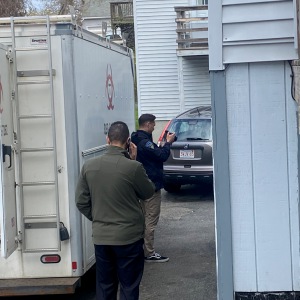 Authorities ID victim in Greenfield slaying
Authorities ID victim in Greenfield slaying
 State records show Northfield EMS chief’s paramedic license suspended over failure to transport infant
State records show Northfield EMS chief’s paramedic license suspended over failure to transport infant
 New buyer of Bernardston’s Windmill Motel looks to resell it, attorney says
New buyer of Bernardston’s Windmill Motel looks to resell it, attorney says
 On The Ridge with Joe Judd: What time should you turkey hunt?
On The Ridge with Joe Judd: What time should you turkey hunt?
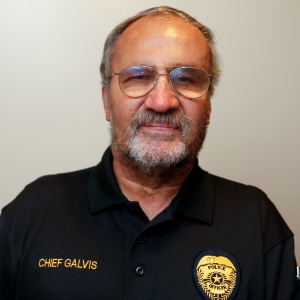 Ethics Commission raps former Leyden police chief, captain for conflict of interest violations
Ethics Commission raps former Leyden police chief, captain for conflict of interest violations
Dunlavy noted that 26% of the county’s roads are unpaved. Leverett Town Administrator Marjorie McGinnis said many of Leverett’s dirt and gravel roads, such as a 1.4-mile section of the mostly gravel Dudleyville Road, have created hazardous driving conditions, worsened by climate change’s weather impacts.
“Climate change has made it harder. Roads used to freeze and they’d be solid, so you actually had a surface to plow,” McGinnis said. “Now they don’t. They freeze and they melt and they freeze and they melt, and it pours on them all winter long. It makes for a mud season that can go on for a couple of months versus a week or so.”
McGinnis added that while paving the town’s roads does not come with a high cost for materials, the work relies heavily on skilled laborers and takes time. She estimated the paving of Dudleyville Road would likely cost between $1.2 million and $4 million.
Addressing the county’s work toward passenger rail projects and roadway improvements, state Sen. Jo Comerford, D-Northampton, referred to the county’s development of micro-transit bus routes as a “Herculean lift.”
Comerford added that there has been a great deal of public support for the Northern Tier project, and that the project could be completed with “sustained funding,” noting that a passenger rail connecting North Adams and Greenfield to Boston would provide opportunity for economic and population growth to western Mass.
“This can be done. … What we need is the socio-political will to make that happen,” Comerford said. “Can you imagine? To be in Greenfield and to be able to get to Boston and back? We all know people who remember the service, whose caretaker, parents or grandparents went to work in Boston or went to see the Red Sox play. It was a different community here.”
Tibbits-Nutt reflected on her upbringing in a rural community and said she had to move from her hometown not because she wanted to, but because there was a lack of access to college and job opportunities.
“There’s a lot of opportunity, but there has to be a shift in the way that we’re approaching this. For me, this is an equity issue,” Tibbits-Nutt said. “We talk a lot about environmental justice, we talk a lot about environmental justice neighborhoods, but so many times that is talking about a city, usually Boston, Cambridge or Somerville. This is an equity issue for the residents who are out here. You shouldn’t have to move just to be able to access the services that you need.”
Anthony Cammalleri can be reached at acammalleri@recorder.com or 413-930-4429.

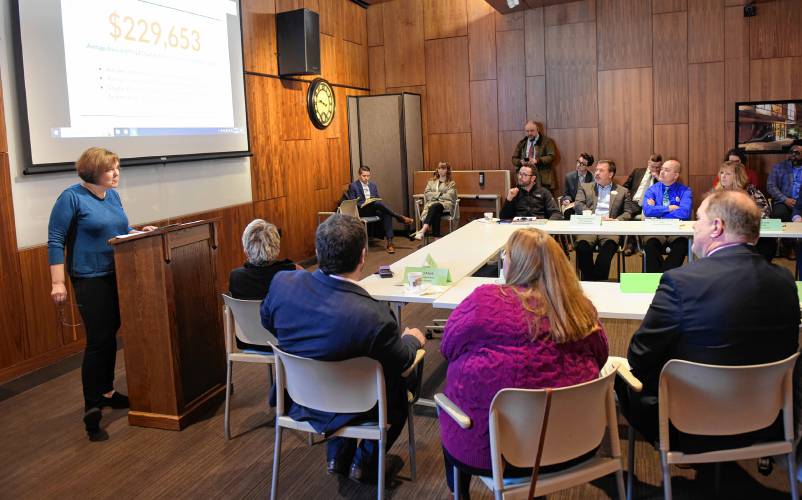
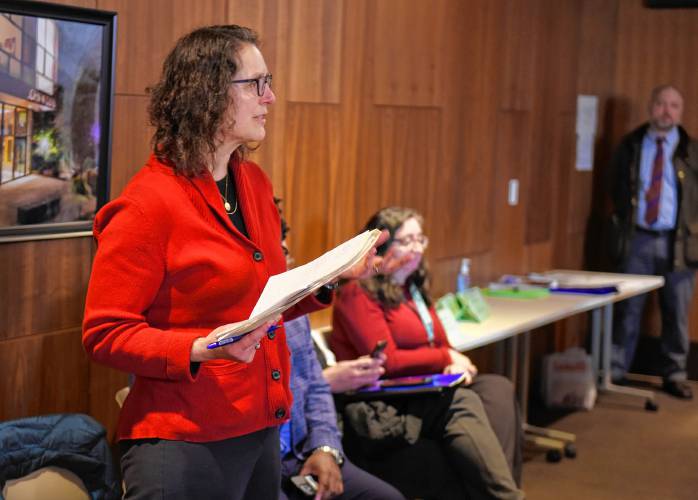
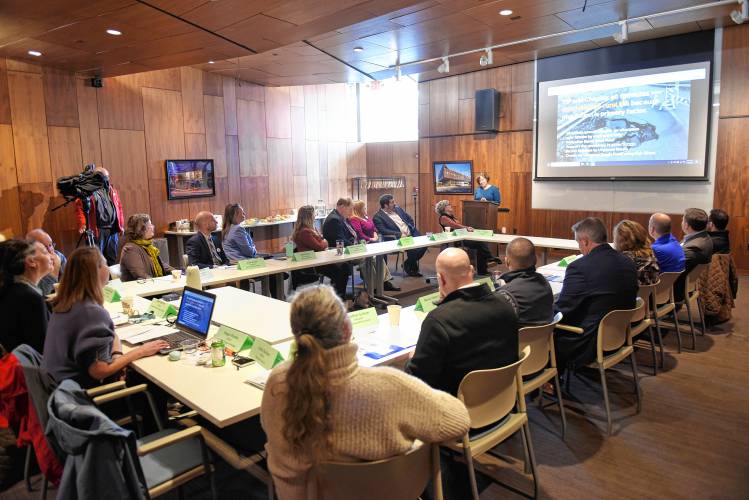
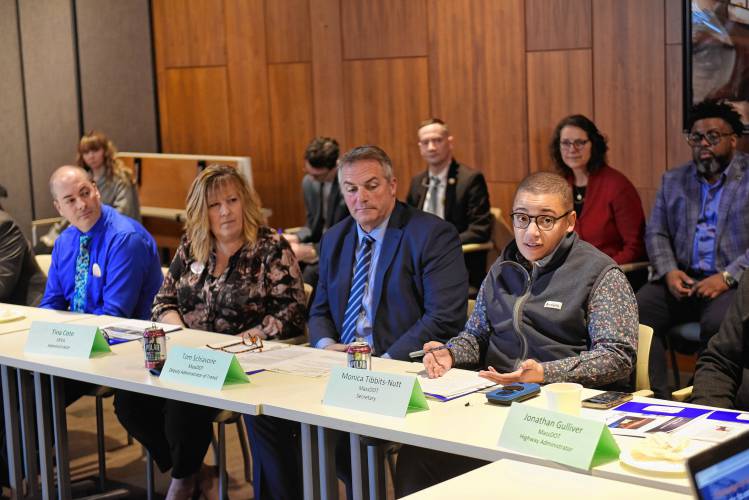
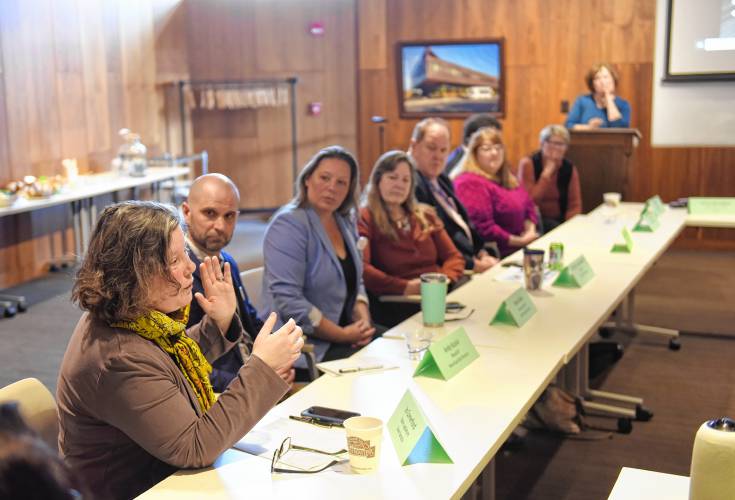
 What are the protocols for emergency transport of infants?
What are the protocols for emergency transport of infants? Frontier Regional School students appeal to lower voting age
Frontier Regional School students appeal to lower voting age
